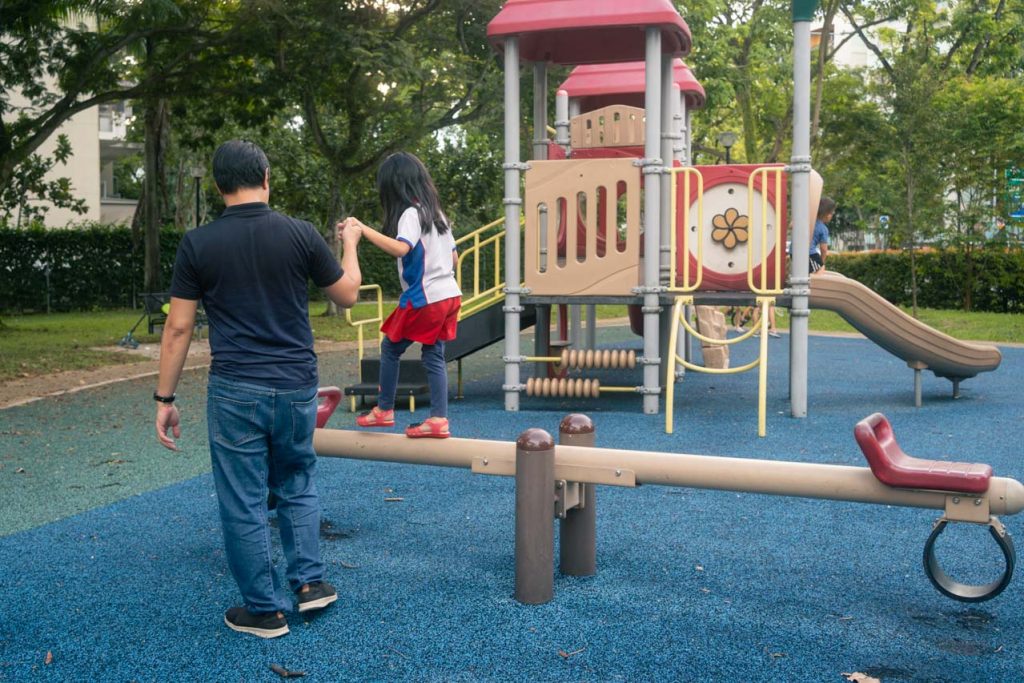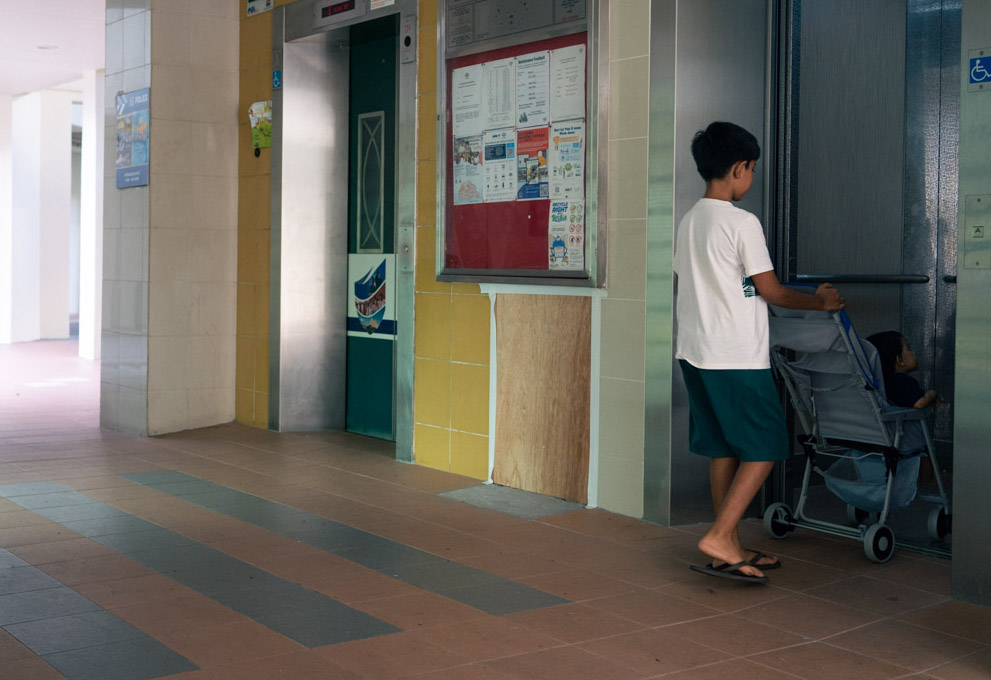Top image: Stephanie Lee / RICE File Photo
An upbeat pop tune plays in the background as Jane* cheerily greets me in a café. Dressed in a bright dress, the 22-year-old is exactly what I pictured as a final-year University student. But not what I imagined as a glass child.
The term ‘glass children‘ refers to individuals who have siblings with special needs. Like glass, they are often overlooked and treated as invisible. Their own needs are often deprioritised—the needs of their differently-abled siblings tend to be more urgent. Most times, it leads to parental neglect in their childhood.

We start talking, but as she gestures, the scars on her hands and forearm catch my eye. I wonder if it’s rude to probe, but to my relief, Jane brought them up first.
“These are all from my brother,” she says, pointing out the marks individually. “I have a lot of injuries. When he scratches, he’ll dig into my skin, and I’ll bleed. I have also had muscle pulls on my neck and shoulders.”
Jane’s 20-year-old brother, James, is diagnosed with severe autism spectrum disorder with an accompanying intellectual disability. This means that when he transitions from one activity to another— even for simple tasks like going for a shower—he needs someone to help him because he gets distressed.
Overlooked and Emotionally Neglected
As she recounts her growing-up years, I begin to see how Jane fit the description and characteristics of a glass child to a T.
Since young, her brother would always have visitors at the house. Social workers and physical therapists often stop by to check on James and ensure he’s doing okay.
“I felt envious because they were all here to see him,” she recalls. “When interacting with a child, therapists tend to have exaggerated body language, so it would also come across that they were delighted to see him. And they would work with him for many hours.”
During these sessions, she would be told not to interrupt, stay out of the way, and was often left to her own devices. She also doesn’t recall being given any explanation for who these people were and why they were there.
As a child, this left her feeling confused and resentful towards her brother.
“I would scold him and pinch him. And I got punished for that, but whoever punished me focused on only punishing the behaviour. It only made me angrier.”
Growing Up a People-Pleaser
While the neglect from her parents resulted in aggression towards her brother at home, Jane was quite the opposite in school. In school, she sought to make up for the lack of attention she was so deprived of.
“With other people, it resulted in a lot of people-pleasing behaviour. I fought to get their attention because I couldn’t get it at home.”
Her people-pleasing nature extended to her relationships with her teachers. As the only other adult figures in her life, she saw her teachers as substitutes for her parents. She would try her best to make them happy, which helped establish positive relationships with her teachers.
The presence of other supportive adults in her life proved imperative in her later years.
While preparing for her ‘O’ Level Examinations, Jane began suffering from anxiety and panic attacks because of the academic pressure. When her grades plummeted, it left her parents disappointed and upset.
“They believed that [my anxiety] was just poor stress management and that I wasn’t trying hard enough to manage my stress.”
Her condition only worsened when she went to junior college.
“It escalated to a point where I was a high-risk case, to the point of depression and being suicidal.”
Noticing that something was wrong, she was quickly flagged up by her teachers. Her parents, on the other hand, were still adamant in their belief that she didn’t need additional help. She recalled her father lamenting about her only giving her parents added stress because their plates were already full from caring for her brother.
It took two months of her teachers and school counsellor working with him and convincing him otherwise. The father changed his mind after Jane experienced a panic attack.
Even after he relented, she was only in therapy for five months before being pulled out because it was simply too resource-intensive—a financial burden her parents could not bear.
“I had to stop therapy at a point that would have been most helpful because my father felt that their resources could have been better invested into my brother.”
“I did feel resentful of my father then. But it wasn’t long-drawn because I could see him trying to create good experiences when I was stressed out.”

“He would bring me on daddy-daughter dates during my ‘O’ Levels. He would pick me up after school or bring me for ice-cream so that I could relieve my stress. We also went on trips after my exams, just the two of us.”
While her mental health journey is far from over, she concluded that, fortunately, that period of her life ended with a positive outcome.
Pressure Makes… Glass?
Jane’s experience is an extreme consequence of the high expectations placed on glass children.
With parents who have their hands tied with the needs of one child, glass children are often forced to become independent at a young age. Most times, these children are pressured to offload some of the strain on their parents—a third parent of sorts.
At no time is this parental role more apparent than during the peak pandemic years.
For the first 16 years of his life, Jane’s brother was taken care of by a domestic helper. But when she left during the pandemic, Jane had to step up and manage his meltdowns. This includes physically restraining him when necessary.

When the family goes on holiday, she handles most of the administration work—from communicating with airline staff to doing the paperwork and managing the luggage.
There’s No ‘I’ in Team
Aida, 32, who has two younger siblings with special needs, describes her own Glass Child experience as being a team player.
Aida is the oldest of four sisters—Dianna, Sheila, and Aisha. Sheila is diagnosed with global developmental delay, while Aisha has autism.
27-year-old Sheila requires assistance with most of her daily activities, like going to the toilet and moving around. She can’t talk or hear very well. On the other hand, 22-year-old Aisha has triggers that are unpredictable, such as loud sounds from the environment or construction work, or high-pitched noises from children laughing.
“They don’t get along,” Aida says. “Sheila communicates by vocalizing, while Aisha hates loud noises.”
The stress of managing this chaotic household all fell onto the shoulders of Aida’s mother.
As her father worked in Kuala Lumpur and was only at home on weekends, her mother took up the caretaker role most of the time. In addition to four children, her mother also had to care for her grandmother, who lived with them when Aida was a teenager.
As the oldest child, Aida is aware of her mother’s many responsibilities. It was why she grew up trying to be as independent and well-behaved as possible.
“When I was a teenager, I was a people-pleaser, always a good student and never broke the rules.”
“I just didn’t want to get in the way of my mum, who already had so much to do.”
All for the Greater Good
To fill the role of caretaker, glass children must make sacrifices—even if they are unaware of it. The fact that both profiles I spoke to are people-pleasers points to how they tend to sacrifice their own happiness for the greater good.
Aida, for example, has to schedule her plans around her siblings’ needs. At one point, Aisha was very particular about Aida being in the room with her when she slept.
The moment her mum gives her a call, it signals the end of her night. Whatever she was doing or wherever she may be, she would have to cut it short to head home immediately to placate her sister.
There have also been times when Aisha would refuse to sleep while she was in the room. To meet her sister’s demands, Aida would sleep in the living room or bunk in with Sheila.
Essentially, there was never a space to call her own, even in her own home.
Despite this, she continued to take everything in her stride. Even as she recounts her experiences, she hesitates to use the word “sacrifice”.
“It’s the best I can do as a team player,” she says.
Learning To Draw Boundaries
But growing up needing to constantly cater to her siblings’ needs means she often sets aside her needs, thinking they are small and insignificant.
“I realised that I don’t know how to say no and that I’m not assertive with my needs,” Aida says. A huge people-pleasing trait.
She recalls when she started freelancing as an illustrator. Her mother often depended on her for help, such as fetching her sister from school. The flexibility of her job became a pitfall—she would have to put down whatever project she had on hand just to meet her sister’s needs.

“How can my small deadline compare to attending to my sister who’s crying at school? Although my work is also important, you always react to the louder thing in the room, whichever seems the most urgent,” Aida remarks.
Her job as a freelancer often came second to her job as her sisters’ caretaker. She began to realise that the boundary between her two roles was not clear enough. She was sacrificing her own career for her sister.
“That was when I realised how much of my life I was giving.”
In 2018, she took on a full-time job, rendering her uncontactable during office hours.
“Now,” she says, “I’m focusing on myself.”
Planning for the Future
In the same way, Jane never thought much about what was expected of her. When she had to stay in a Residential College as part of the University Scholars Programme, she rarely stayed in for more than two days a week.
“It’s ingrained in my mindset to go home in case something happens,” she says.
Her weekends would also be spent with family. But she doesn’t hold grudges for not being able to spend time for herself.
“I can’t see myself living in other ways. When you have siblings with special needs, you understand from young that you can’t have an individualistic mindset.”
Jane is now hardwired to spare a thought for her family in everyday life. Even when she’s out of the house, she can’t help but worry if everything is okay at home. If her parents take too long to answer her messages, her mind will wander and worry.
When it comes to her making plans for her own future, her family isn’t far from her mind. She has to think about how she can continue to provide for her brother in case her parents are no longer able to.
“Many decisions I’ve made for school and my career has revolved around James and his life,” Jane ponders.
While her father has actively tried to convince her that they have a trust fund to ensure that her brother will be well taken care of in the future, she admits that it’s hard for her to change her mindset.
She assures me that other glass children would also assume that they would have to take over the responsibilities. Regardless of the plans their parents put in place.
Aida is fixed on the belief that she might eventually have to take care of her siblings. She tells me that planning for children of her own is out of the question.
“I have also discussed with my boyfriend about putting a big workshop table in our house in future for my sisters to do activities or play with puzzles,” she shares.
For now at least, she’s letting her parents prepare and plan what they can while she chooses to focus on herself.
Fragile but Unbreakable
Despite the challenges that she faces, Aida confesses that she feels pretty privileged to have grown up with parents who tried to reduce the chances of her feeling like a glass child.
“I appreciate that my mum continued to put up a front for Diana and me when we were kids, even while she was going through so much,” she says.
She has never felt resentment directed towards her siblings because her parents have always actively encouraged the four sisters to play together.
“When Sheila was born, my mum gave Diana and me toys, saying they were gifts from Sheila. My mum scammed us from the start,” Aida jokes.
Even today, her sisters continue to play a big part in her artistic journey and her creative works.
Similarly, despite their relatively tumultuous relationship, Jane feels protective of her brother.
Spoken like a true older sister, she laughs: “I can call my brother an asshole, but other people can’t”.
It’s a sentiment that anybody with siblings can understand. “I really cannot stand it when people speak negatively about him or treat him in a disrespectful manner.”

She recounted incidents from primary school and secondary school when people would say crude things about her brother—harsh words that simply didn’t respect him as a differently-abled person. At that age, her first reaction was to retaliate by physically pushing the culprits.
“It wasn’t very appropriate,” she admits. Now that she has matured and grown older, she continues to dedicate her time and energy to protecting her brother by advocating for autism awareness at talks and events.
The Motivation To Keep Going
Besides speaking and organizing these events, Jane plans to make a bigger impact by entering the special needs field after graduation.
She tells me that since she grew up reading about and having discussions with her father about autism spectrum disorder, it felt natural to go into the field. It was the only world she ever knew.
“I’ve seen the strengths and areas of improvement within the sector, and I want to do something about it. As a sibling of someone with special needs, I think my perspective could be beneficial.”
That’s not to say that she doesn’t grow tired. Jane confesses that sometimes it can feel like running on a fast-moving engine with very little fuel.
Still, she continues to organise and attend five to seven events for her advocacy efforts every college semester.
“It might not be a huge thing,” says Jane. “But the fact that I’m able to educate someone, advocate for the community and transform public perspectives—that continues to motivate me.”





